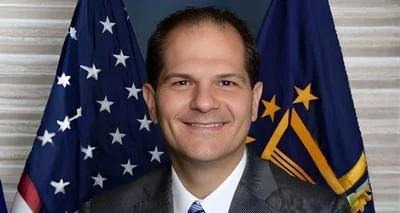Illinois' long-vacant legislative inspector general (LIG) office, suddenly filled earlier this month after a sexual harassment scandal bloomed in Springfield, could contribute to state liability for lawmaker's misconduct, a Chicago-based attorney said during a recent interview.
Determining whether the state is a misbehaving lawmaker's employer in possible Title VII lawsuits is crucial and often misunderstood in the public sector where identifying a person's employer is muddied by multiple agencies or municipalities, Kerri Feczko, an associate attorney at Goldman & Ehrlich in Chicago, told Chicago City Wire. Title VII is an amendment of the Civil Rights Act of 1964 which, among other things, prohibits employment practices that encourage a culture of sexual harassment
"Facially, it is unclear whether the state of Illinois would be considered the 'employer' for Title VII purposes here, and whether it has immunity against such claims even if it was," Feczko said during an email interview. "What increases the state's chances of being held liable in this case are (1) that the inspector general position – authorized with investigating complaints and enforcing punishment – was left vacant for several years, and (2) the Ethics Commission didn’t have the authority to investigate any sexual harassment complaints that it did receive."

Kerri Feczko, an associate attorney at Goldman & Ehrlich in Chicago
| Photo courtesy of Goldman & Ehrlich in Chicago
Broadly speaking, Feczko said, private and public sector employers can be held vicariously liable for harassment caused by one of their employees. "This essentially means that the employer is held responsible for the wrongful acts of their employee," she said.
"However, there are some caveats. For one, vicarious liability is only found when the harassing employee is a supervisor or, at the very least, has some degree of authority. Often, courts will have to investigate whether the harassing employee has the power to make decisions that are 'tangible employment actions' – hiring, firing, promoting, demoting, undesirable reassignment etc."
On Nov. 4, Julie Porter, a former assistant U.S. attorney in Chicago where she was chief of the criminal division, was appointed temporary legislative inspector general to begin dealing with a backlog of 27 ethics complaints against lawmakers in the Illinois General Assembly. Those complaints have not been addressed for lack of an acting inspector general for the last three years.
Rep. Allen Skillicorn (R-East Dundee) and other GOP lawmakers called for an overhaul of the legislature's ethics review system. Skillicorn called for the now-filled office of LIG to have more power to police the state General Assembly. "The office of LIG must be invested with the power necessary to bring charges forward for prosecution without the approval of legislators," Skillicorn said in a press release.
"Sexual harassment can take many forms. The most egregious – where power is abused by legislators to intimidate or coerce others – should result in a perp walk where those convicted follow in the footsteps of a few former governors in 'stamping out license plates' at the local prison," Skillicorn said in the release.
Porter's appointment and Skillicorn's comments come in the wake of sexual harassment allegations in the Illinois' General Assembly and in other states, one of many similar complaints worldwide since allegations against film mogul Harvey Weinstein began to gain attention last month.
In Springfield, Sen. Ira Silverstein (D-Chicago) lost his position as Senate Democrat majority caucus whip over allegations he sexually harassed a lobbyist. The Chicago Tribune, in an op-ed piece, has since questioned why Silverstein is still a member of the Illinois state Senate. Meanwhile, sexual harassment scandals also have broken out in other general assemblies, including those in Oregon, Massachusetts and Kentucky.
Sexual harassment often, though not always, derives from an abuse of power, Feczko said. "Lawmakers are positioned in one of the highest seats of power," she said.
"And with that power comes an amplified sense of confidence and aggression which can sometimes lead to sexual harassment, an alternative form of bullying. And, just like any playground bully from middle school, the bully won’t stop until he or she is told to stop. This makes it especially more difficult to be the first emboldened person to stand up to the bully," Feczko said.
While lawmakers may not actively or consciously exempt themselves from the rules that apply to everyone else, they know that their position of power will emit that effect, Feczko said. "Working as a subordinate to this position of power is the main instigator of silence among victims," she said.
"It’s the same reason why many victims do not feel emboldened to report their own story of harassment until it is first disclosed by someone else. In what is otherwise a tough burden of proof in a 'he said, she said' situation, strength can come in numbers, even if only provides a mere comfort of corroboration to the victims themselves," she said.
The situation in Springfield has been especially problematic for alleged sexual harassment victims because they really haven't had an internal harassment or complaint procedure to follow as often exists in the private sector, Feczko said. "It becomes especially problematic in this case when there is no HR department to complain to and the Ethics Committee couldn't do anything significant with the complaints that were submitted," she said.
"Then, the victim must look to external options. Sexual harassment is a form of gender discrimination under Title VII, so victims should look to filing a complaint with the (U.S. Equal Employment Opportunity Commission) or contacting an EEOC Counselor if the victim is a federal employee. This can, ultimately, provide a pathway to a civil suit," she said.






 Alerts Sign-up
Alerts Sign-up